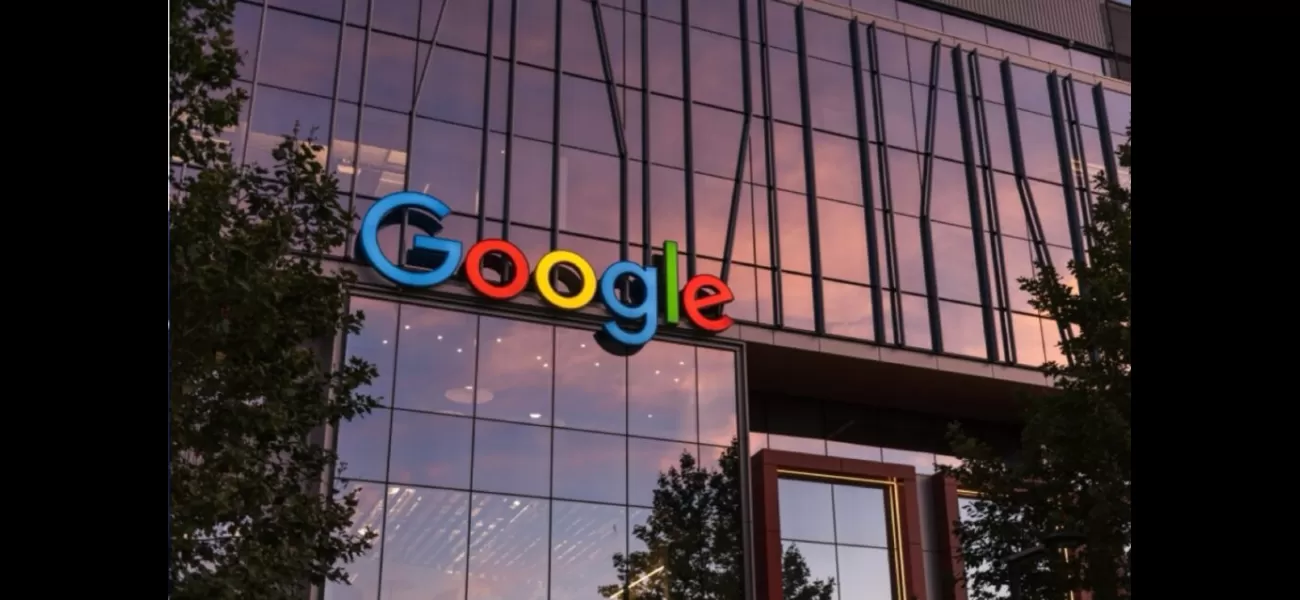A judge declares that Google's search function is an unlawful monopoly.
US Attorney General Garland hails win against Big Tech as regulators step up efforts to tackle their dominance.
August 6th 2024.

According to a report from The Associated Press, a judge has ruled that Google's search engine is an illegal monopoly. The decision was made by U.S. District Judge Amit Mehta on August 5th, after a lengthy legal battle between the tech giant and the U.S. Justice Department. This case has been labeled as the biggest antitrust showdown in the country in 25 years.
The judge reviewed evidence and heard testimony from top executives at Google, Microsoft, and Apple during a ten-week trial in 2023. After both sides presented their closing arguments in May 2024, Judge Mehta finally reached a decision. In his 277-page ruling, he stated, "After carefully considering and weighing the witness testimony and evidence, the court has concluded that Google is a monopolist and has acted as one to maintain its monopoly."
The ruling is expected to have a significant impact on the internet and could hinder one of the world's most beloved companies, Alphabet Inc., which is Google's parent company. Google has argued that its popularity is solely due to consumers' desire to use it as their go-to search engine. With its reputation for being highly efficient at finding information online, Google has become synonymous with internet searches. In fact, the search engine processes a staggering 8.5 billion queries per day worldwide, almost double its volume from 12 years ago.
However, the judge's ruling focused on Google's practices of spending billions of dollars each year to ensure that its search engine is the default option on new cellphones and other tech devices. Back in 2021, the company reportedly spent over $26 billion on these efforts.
While Google has defended itself against these accusations by stating that consumers can easily change their search engine preferences, Judge Mehta pointed out that Microsoft's Bing search engine holds an 80% share of the search market on the Microsoft Edge browser. This shows that other search engines have the potential to be successful if given a fair chance.
According to The Guardian, Google's President of Global Affairs, Kent Walker, has announced that the company plans to appeal the ruling. In a statement, Walker said, "This decision acknowledges that Google offers the best search engine but concludes that we shouldn't be allowed to make it easily available."
The U.S. Attorney General, Merrick Garland, has called the ruling a significant victory for antitrust regulators at the Justice Department. The department filed a lawsuit while Donald Trump was still in office, and now, under the Biden administration, they have been ramping up efforts to combat the power of Big Tech. Garland stated, "This victory against Google is a historic win for the American people. No company, no matter how large or influential, is above the law. The Justice Department will continue to vigorously enforce our antitrust laws."
While the ruling has the potential to change the landscape of internet searches, it does not specify what penalties Google will face for violating antitrust laws. This raises questions about the future of the company's dominance over the search industry and its operations.
In related news, Google has recently launched an AI Essentials course to promote racial equity and economic opportunity. This initiative aims to provide individuals from underrepresented communities with the necessary skills and knowledge to excel in the tech industry.
The judge reviewed evidence and heard testimony from top executives at Google, Microsoft, and Apple during a ten-week trial in 2023. After both sides presented their closing arguments in May 2024, Judge Mehta finally reached a decision. In his 277-page ruling, he stated, "After carefully considering and weighing the witness testimony and evidence, the court has concluded that Google is a monopolist and has acted as one to maintain its monopoly."
The ruling is expected to have a significant impact on the internet and could hinder one of the world's most beloved companies, Alphabet Inc., which is Google's parent company. Google has argued that its popularity is solely due to consumers' desire to use it as their go-to search engine. With its reputation for being highly efficient at finding information online, Google has become synonymous with internet searches. In fact, the search engine processes a staggering 8.5 billion queries per day worldwide, almost double its volume from 12 years ago.
However, the judge's ruling focused on Google's practices of spending billions of dollars each year to ensure that its search engine is the default option on new cellphones and other tech devices. Back in 2021, the company reportedly spent over $26 billion on these efforts.
While Google has defended itself against these accusations by stating that consumers can easily change their search engine preferences, Judge Mehta pointed out that Microsoft's Bing search engine holds an 80% share of the search market on the Microsoft Edge browser. This shows that other search engines have the potential to be successful if given a fair chance.
According to The Guardian, Google's President of Global Affairs, Kent Walker, has announced that the company plans to appeal the ruling. In a statement, Walker said, "This decision acknowledges that Google offers the best search engine but concludes that we shouldn't be allowed to make it easily available."
The U.S. Attorney General, Merrick Garland, has called the ruling a significant victory for antitrust regulators at the Justice Department. The department filed a lawsuit while Donald Trump was still in office, and now, under the Biden administration, they have been ramping up efforts to combat the power of Big Tech. Garland stated, "This victory against Google is a historic win for the American people. No company, no matter how large or influential, is above the law. The Justice Department will continue to vigorously enforce our antitrust laws."
While the ruling has the potential to change the landscape of internet searches, it does not specify what penalties Google will face for violating antitrust laws. This raises questions about the future of the company's dominance over the search industry and its operations.
In related news, Google has recently launched an AI Essentials course to promote racial equity and economic opportunity. This initiative aims to provide individuals from underrepresented communities with the necessary skills and knowledge to excel in the tech industry.
[This article has been trending online recently and has been generated with AI. Your feed is customized.]
[Generative AI is experimental.]
0
0
Submit Comment





